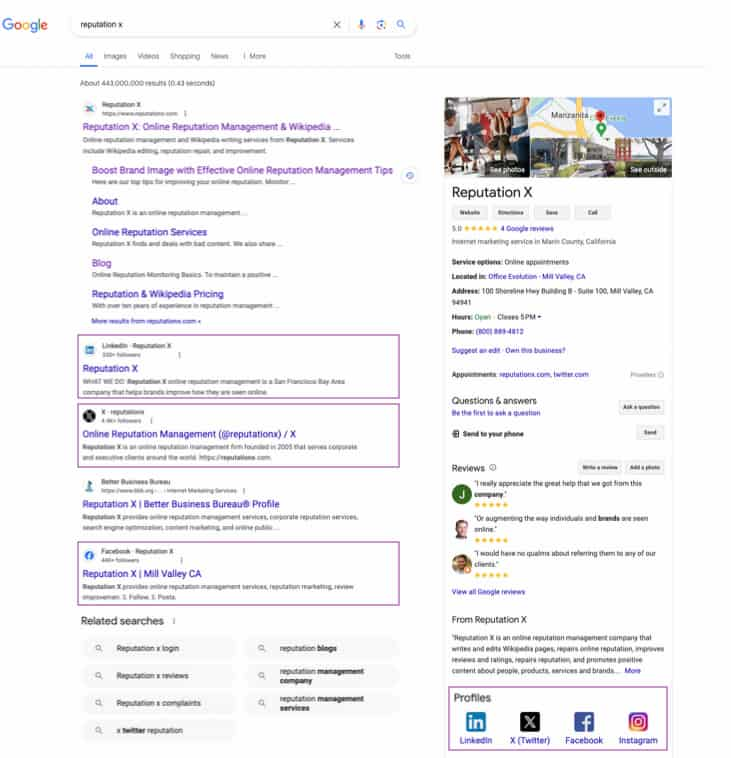If you’re like most people, managing your socials has become second nature. Checking social feeds is on par with checking our emails. Likewise, social media is highly important in online reputation management.
Platforms like Facebook, Twitter, and LinkedIn provide unparalleled opportunities to shape how consumers and employers perceive personal and company brands.
This article will cover why you must pay attention to your social media presence and best practices for managing your online reputation.
Table of contents
The Broad Impact Social Media Has on ReputationsOpportunities for Positive ImpactChallenges and RisksRecruiting and Employer Reputations Are Linked to Social MediaImplications for CompaniesIndividual Reputation ManagementSocial Media Ranks High in Search ResultsProactive Promotion Over PassivityManaging social media reputations involves two core componentsBest Practices for Managing Your Social Media ReputationPerform Regular AuditsActively Monitor Mentions and HashtagsEngage Followers and Industry Thought LeadersPost Valuable, Shareable ContentFinal Thoughts: Prioritize Your Social Media Reputation
The Broad Impact Social Media Has on Reputations
Social media has become the first place consumers and employers turn to form an opinion.
More than ever, platforms like Facebook, Twitter, and LinkedIn shape assumptions and perceptions of individuals and brands.
60% of U.S. hiring managers say employers should screen all applicants’ social media profiles.
44% of adults have searched for background information on a professional service provider’s online reputation before hiring them.
31% of adults have searched online for information about co-workers, professional colleagues, or business competitors.
Social media platforms have fundamentally transformed communication, offering opportunities and challenges in managing reputations.
Opportunities for Positive Impact
Enhanced Visibility and Brand Awareness: Social media platforms allow individuals and organizations to reach a vast audience quickly and effectively. This visibility can boost brand awareness and foster a positive reputationwhen managed correctly.
Direct Engagement with Stakeholders: Social media enables direct interaction with many stakeholders, including customers, employees, investors, and the general public. Such interactions can build stronger relationships, increase trust, and enhance the perception of transparency and accountability.
Crisis Management and Response: Social media provides a platform for rapid response to negative perceptions or crises. By addressing concerns directly and publicly, organizations can mitigate damage to their reputations and demonstrate their commitment to accountability and customer service.
Brand Differentiation: Through strategic content creation and engagement, organizations can use social media to highlight their unique value propositions, innovations, and contributions to the community. This differentiation can positively influence their reputation among their target audience.
Challenges and Risks
Viral Negative Publicity: One of the biggest risks of social media is the potential for negative comments or posts to go viral, quickly damaging an individual’s or organization’s reputation. Such situations require prompt and strategic responses to contain and address the issues raised.
Loss of Control over Content: Social media platforms are open forums where users can freely post their opinions and experiences. This openness means that organizations have limited control over what is said about them, posing challenges in managing and safeguarding their reputations.
Misinformation and Rumors: The rapid spread of information on social media can also lead to the dissemination of false information or rumors, damaging reputations. Combatting misinformation requires constant vigilance and proactive communication strategies.
Privacy and Security Concerns: Data privacy and security issues can arise on social media, potentially harming an organization’s reputation. Ensuring the protection of sensitive information is crucial in maintaining stakeholder trust.
In summary, social media has a broad and significant impact on reputations. It offers tools for positive engagement and brand building while posing risks requiring careful management.
Organizations and individuals must navigate these dynamics strategically to leverage social media’s benefits while mitigating its challenges.
Recruiting and Employer Reputations Are Linked to Social Media
Social media has become thoroughly integrated into the recruitment process, with platforms enabling employers an unprecedented look into who candidates are beyond their resumes. Consider the following:
● 95% of businesses today admit to using social media to screen and research job candidates before extending offers.
● Hiring managers view candidates’ social profiles to assess culture fit, personality traits not evident in interviews, and professionalism adherence outside of work.
● Seven in ten employers (70 percent) use social networking sites to research job candidates during hiring process.
This data reveals an unmistakable reality: the social profiles of a company’s employees directly impact employer reputations now.
Implications for Companies
● Having clear social media policies and training on best practices is essential to protect reputations in the hiring process. Educate teams that online presence matters.
● Promoting a strong, positive company culture that employees then reflect through their external social activities further showcases an employer brand effectively.
Individual Reputation Management
● Job seekers must know that hiring managers are likely viewing their profiles.
Regular audits of security settings and post content are essential.
Social recruiting’s prevalence means individuals and companies can no longer view their online presence and real-world presence as disconnected. Reputations are shaped by the impressions and assumptions hiring managers form about candidates online today.
Social Media Ranks High in Search Results
Social media pages are ranked very highly in Google SERPs. For example, Reputation X’s social profiles are all linked in the knowledge graph in the upper right corner of the page. Links to Reputation X’s social media pages also appear in the #2, 3, and 5 spots. The only pages that outranked social media were the company home page and the BBB.
Social media provides unprecedented opportunities to influence what people see when they search for your name or company online. Consider:
● Ranking high in search results not only ensures visibility, it also adds to your credibility. Most people don’t scroll past the first 10 search results, so make sure that what appears high up in search results is a positive reflection on your reputation.
● Mentions, tags, keywords, and links in social posts all impact search engine visibility.
● Driving searches to your social media profiles facilitates managing visibility versus allowing third-party sites to take the reins.
Proactive Promotion Over Passivity
Here’s how you can take control over your search results using existing social media pages:
● Promote brand handles, hashtags, and recent news links across networks to boost citations.
● Share positive third-party articles or reviews that include mentions to improve prominence.
● Respond to all reviews and comments on profiles to maximize engagement metrics that increase visibility.
Well-optimized social media pages can rank on the top of online searches for personal names or brands.
Since only 5% of searchers will look past page one listings, mastering search engine optimization best practices on social platforms enable deliberate online reputation shaping versus leaving it up to chance.
Fundamentals of Social Media Reputation Management
Clearly, social media shapes assumptions. Both consumers and employers turn to these networks to form opinions. Ignoring this reality comes with great risk. That’s why a proactive social media presence is critical for reputation management.
Managing social media reputations involves two core components
● Observing and Shaping Brand Perceptions: Monitoring online conversations allows identification of both positive and negative perceptions. Tracking brand mentions provides valuable insights into what types of posts work and which ones do not.
● Building Trust and Credibility: Posting meaningful, positive content and interacting with your audience nurtures relationships. This cultivated trust and credibility is the foundation of a strong online reputation.
Best Practices for Managing Your Social Media Reputation
Perform Regular Audits
Set a cadence for your social media audits. Performing regular audits will provide consistent data to track wins and failures on social media.
Here are some components your social media audits should include:
Assess profiles
Asses past posts
Review online conversations about and with your brand
Actively Monitor Mentions and Hashtags
Ongoing monitoring shows whether your efforts to shape perspective are working. The real-time nature of social media allows rapid response to developing issues or negative commentary.
If you notice similar feedback regarding the same topic, that could be a sign to make improvements. For example, let’s say you have a clothing brand, and multiple people are complaining on social media that your sizing isn’t consistent with other similar brands. That would be worth looking into at the production level.
Engage Followers and Industry Thought Leaders
Interacting with followers and those with industry influence, like commenting on and sharing content, increases positive associations. This facilitates driving your preferred narrative.
Post Valuable, Shareable Content
Focus posting efforts on content followers will value and be motivated to share. This expands your digital footprint and boosts credibility.
Remember that the social media landscape is very fast-paced. People are experiencing information overload, and their feeds are highly saturated. Find out what makes your content stand out, and always provide value in your posts. If your post doesn’t provide value, it will not get shared.
Final Thoughts: Prioritize Your Social Media Reputation
In an era where 95% of employers are screening candidates online and 44% of consumers are doing the same before hiring on a professional service provider, brands and individuals must prioritize their social media reputations.
Monitoring online conversations and choosing what content to post gives unprecedented control over visibility and perception today. That’s why taking a proactive approach to social media reputation management is mission-critical.
The above best practices help ensure you are observing, shaping, and managing your reputation effectively. However, crafting a tailored strategy based on your unique business or personal needs is key to protecting this vital asset fully. Contact us today to start using social media to benefit your online reputation.
Citations and Further Reading
Argenti, P.A. (2011). Digital Strategies for Powerful Corporate Communications. McGraw-Hill Education.
Kaplan, A.M., & Haenlein, M. (2010). “Users of the world, unite! The challenges and opportunities of Social Media.” Business Horizons.
Lariscy, R.W., Avery, E.J., Sweetser, K.D., & Howes, P. (2009). “An examination of the role of online social media in journalists’ source mix.” Public Relations Review.
“The New Rules of Marketing & PR“ by David Meerman Scott – This book provides a comprehensive guide to Internet marketing and public relations, offering insights into how to use social media and online communication to engage audiences.
“Reputation Economy“ by Michael Fertik and David C. Thompson – Explore how digital reputations are created, managed, and maintained in the digital age, with a focus on the importance of social media.
“Trust Me, I’m Lying: Confessions of a Media Manipulator“ by Ryan Holiday – Holiday exposes the underlying mechanisms of the media industry, emphasizing the role of social media in shaping public perception and reputation.
The post Importance of Social Media in ORM appeared first on The Online Reputation and Wikipedia Blog.

